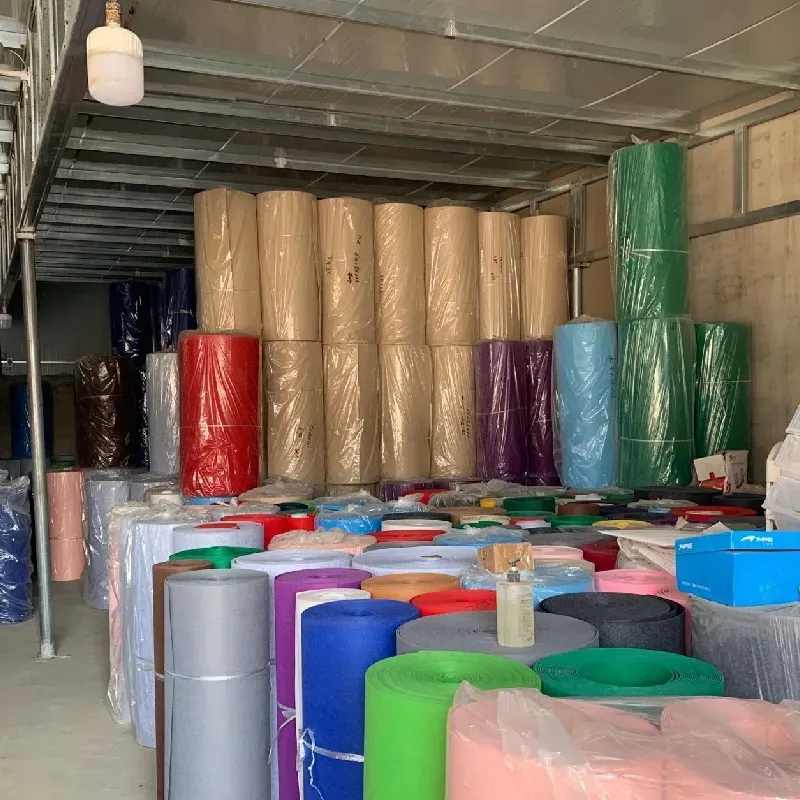polyester felt
Understanding Polyester Felt Properties, Applications, and Benefits
Polyester felt is a versatile and durable material widely used across various industries due to its unique properties. Made from synthetic fibers, polyester felt is produced through a process that involves compressing and matting polyester threads. Unlike natural fibers, polyester offers several advantages, making it a popular choice for numerous applications.
Properties of Polyester Felt
One of the primary features of polyester felt is its strength and durability. Polyester fibers are inherently resistant to wear and tear, making felt products robust and long-lasting. This durability is particularly beneficial in applications where the material will undergo significant stress or abrasion, such as in upholstery or industrial uses.
Additionally, polyester felt is resistant to shrinking, stretching, and fading. This quality ensures that the material maintains its shape and appearance over time, even when exposed to various environmental conditions. The felt is also water-resistant and dries quickly, making it suitable for both indoor and outdoor use. Furthermore, the synthetic fibers are resistant to mildew and mold, which is particularly beneficial in damp environments.
Another notable property of polyester felt is its acoustical performance. The density and fibrous structure of the material allow it to absorb sound efficiently, making it a preferred choice in soundproofing applications. This feature is particularly valuable in commercial spaces, theaters, recording studios, and residential settings where noise control is essential.
Applications of Polyester Felt
The versatility of polyester felt has led to its adoption in a wide range of industries. In the textile and fashion industry, polyester felt is often used in the production of bags, hats, and other accessories. Its ability to be dyed in various colors, combined with its aesthetic appeal, makes it a popular choice among designers.
In the crafting and DIY community, polyester felt is favored for its ease of use. Crafters can cut, sew, and glue polyester felt without fraying, allowing for the creation of intricate designs and shapes. There are numerous craft projects, from toys and home decor to educational materials for children, that utilize this material.
polyester felt

Moreover, polyester felt is widely used in the automotive and manufacturing sectors. It serves as padding, insulation, and noise reduction in vehicles, contributing to a more comfortable ride. In manufacturing, felt is often employed in machinery as protective coverings, buffers, and support materials.
In the realm of home decor, polyester felt has gained popularity as a material for rugs, wall hangings, and cushion covers. Its softness and visual appeal can enhance the aesthetic of any space while providing functionality.
Benefits of Using Polyester Felt
Choosing polyester felt over other materials provides several advantages. Firstly, its cost-effectiveness makes it an attractive option for both manufacturers and consumers. Polyester felt is generally less expensive than natural felt, thus allowing for greater affordability in production and retail.
Secondly, the environmental impact of polyester felt is worth mentioning. Advances in recycling technology have made it possible to produce polyester fibers from recycled plastics, contributing to sustainability efforts. Opting for recycled polyester felt can help reduce waste and promote a circular economy.
Finally, the versatility and availability of polyester felt in various thicknesses and densities allow customization for specific needs. Whether it’s for industrial applications or personal projects, polyester felt can be tailored to meet exact specifications.
Conclusion
In summary, polyester felt is a durable, versatile, and cost-effective material with a broad range of applications. Its unique properties, including strength, water resistance, and sound absorption, make it suitable for industries from fashion and crafts to automotive and manufacturing. As sustainability becomes increasingly important, opting for recycled polyester felt presents an environmentally friendly option. Overall, polyester felt is a material that continues to evolve and adapt, meeting the demands of modern consumers and industries alike.
-
What Makes Felt a Great Choice?NewsNov.19,2024
-
Total Mixed Ration (TMR) Feed for CattleNewsNov.19,2024
-
The Ultimate Guide for Felt Polishing WheelsNewsNov.19,2024
-
Industrial Felt for Various ApplicationsNewsNov.19,2024
-
Felt Makeup Bags and Inserts BagsNewsNov.19,2024
-
Choosing the Right Hotel TowelsNewsNov.19,2024
-
Your Go-To Guide For Affordable Wholesale Wool FeltsNewsOct.31,2024







